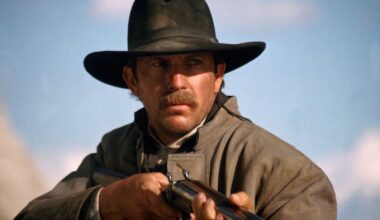The setting was deceptively simple. No dazzling lights, no roaring crowd — just two microphones, a guitar, and the faint hum of recording equipment. Neil sat at one end, shoulders heavy but steady, the glint of decades carved into his voice. Opposite him, Natalie Maines, younger yet already carrying her own scars, leaned into the mic with a gaze that seemed both defiant and fragile. The room itself seemed to breathe with anticipation. When the first notes sounded, it felt as though time had stopped, leaving only the echo of memory between them.
Neil Diamond had always been a man of stories, and in this song, his baritone was the weary narrator of a life lived in full. Each line carried the ache of promises unkept, of love stretched too thin across too many yesterdays. But where his voice wavered, Natalie’s cut through like a blade — sharp, unflinching, the sound of someone who refused to let the past remain unspoken. Together, they didn’t just sing; they argued, pleaded, remembered. Their harmonies weren’t polished perfection — they were jagged, raw, trembling with the same imperfection that made them human.

The lyrics themselves painted the scene: a love that slipped away, a moment too long delayed, the kind of regret that doesn’t fade but grows heavier with silence. And yet, sung in that room, the words transformed. This wasn’t just about a fictional couple. It was about two real people, separated by decades but bound by the universal truth of time’s cruelty. Listeners described the performance as almost “too intimate,” like reading someone’s diary out loud. What made it haunting wasn’t just what they sang, but what lingered in the spaces between the lines — the sighs, the pauses, the way Neil looked down at the floor while Natalie looked straight ahead, unafraid to hold the song’s grief in her stare.
For Neil Diamond, who had built his career on stadium anthems like “Sweet Caroline” and grand declarations like “America,” this was something startlingly different. He was stripped bare of glittering jackets and thundering applause. In that small studio, he was not the legend, not the Hall of Famer. He was simply a man reckoning with the weight of memory. And for Natalie Maines, best known for her fierce independence and refusal to bow to convention, this duet allowed her to step into vulnerability. Her voice, usually a firebrand’s, softened into something aching, something that exposed rather than defended.
Together, they created a dialogue across generations. Neil, the troubadour of the 60s and 70s, who had once defined sincerity for an entire era. Natalie, the rebellious heart of the Dixie Chicks, who carried the wounds of battles fought in public and in private. Their collaboration was not just about melody — it was about what happens when two lives, shaped by time and hardship, collide in a single fragile moment.
Fans who stumbled upon the recording spoke of being shaken. “It felt like I wasn’t supposed to be there,” one listener recalled. “Like I was overhearing two people saying the things they never said when it mattered.” That was its power. It wasn’t glossy or chart-friendly. It was raw. And in its rawness, it became unforgettable.

The legacy of “Another Day (That Time Forgot)” lies not in numbers, not in sales or streams, but in memory. For those who heard it, the performance was proof that Neil Diamond’s genius was not confined to his anthems. He had always known how to find the right partners, the right textures, the right moments to reveal the human heart in song. By choosing Natalie Maines, he didn’t just pick a voice — he picked a foil, someone who would not echo him but challenge him, pulling the truth from his baritone line by line.
Even now, years after Neil’s retirement from touring, the duet stands as one of the late-career moments that revealed the essence of his artistry: honesty. He did not need the roar of thousands. He did not need the flash of lights. All he needed was another voice to answer him, to share the burden of words too heavy to carry alone.
When the final notes faded that day, there was no applause, only silence. But it was not the silence of emptiness. It was the silence of people holding their breath, knowing they had just witnessed something unrepeatable. Two voices, one song, a reminder that time takes much from us — but in rare moments, it gives us something eternal.
In the end, “Another Day (That Time Forgot)” was less a duet and more a mirror. A mirror of what we lose, what we long for, and what we cannot change. Neil Diamond and Natalie Maines gave us not a performance, but a moment. And that moment — quiet, unpolished, painfully beautiful — will outlast the ticking of every clock that inspired it.






